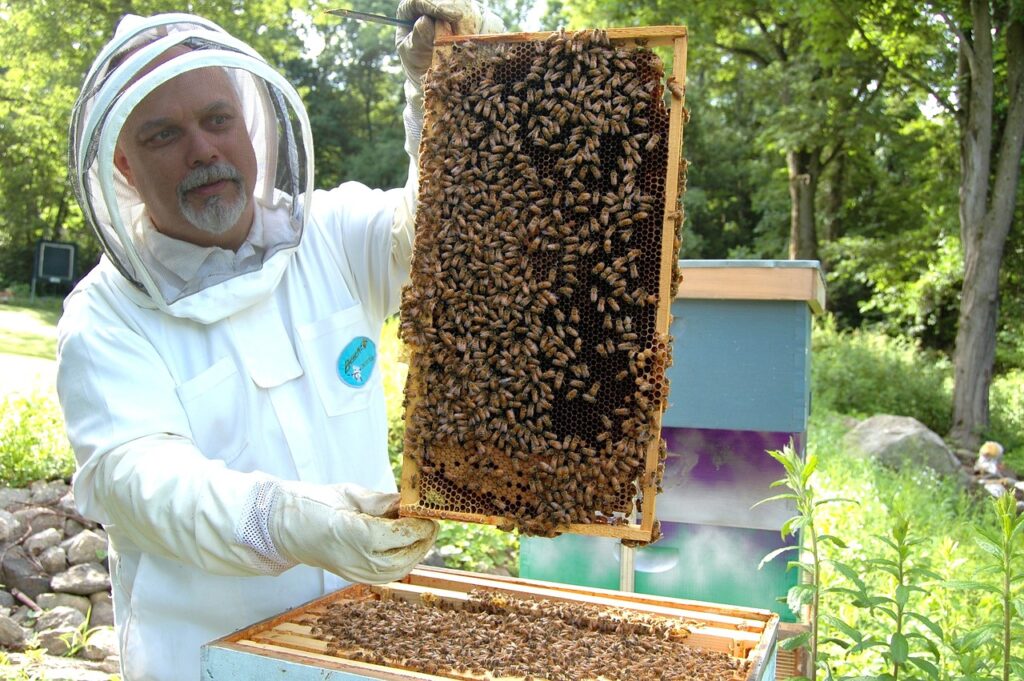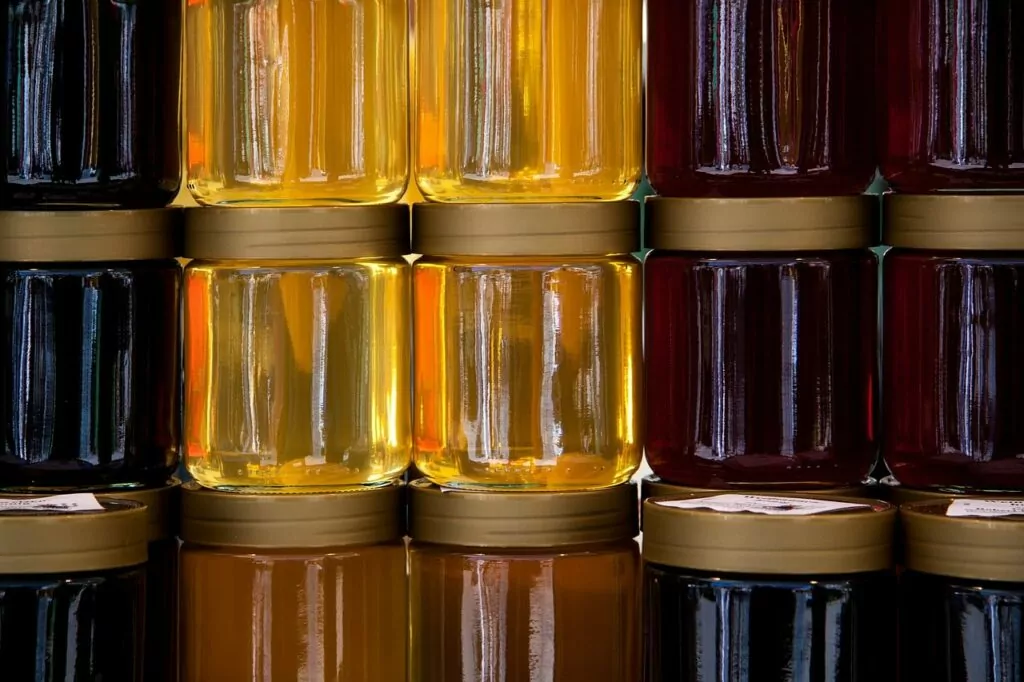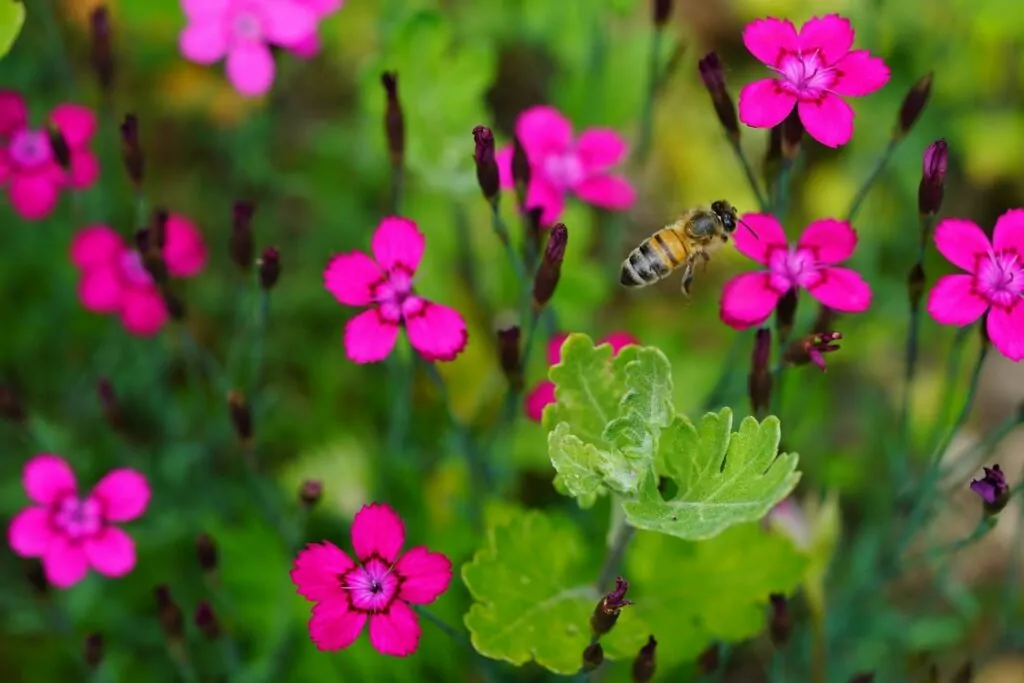Are you interested in starting your own beekeeping journey and reaping the sweet rewards of honey production? Keep reading to learn about the numerous benefits of keeping honey bees, including their role in plant pollination, the financial possibilities of selling honey and other bee products, and the potential mental health benefits of this hobby. From honey production to educational purposes and beyond, there are plenty of reasons to consider becoming a beekeeper. Whether you’re looking to generate income, get in touch with nature, or just enjoy a tasty and healthy hobby, beekeeping may be the perfect activity for you.
Introduction
Beekeeping is an ancient practice, one that has existed for around 10,000 years! The maintenance of bee colonies and honey production has been prized by cultures around the world for millennia, with domesticated bees and man-made hives appearing in ancient Egypt, Greece, China, and more. Today, beekeeping is practiced in every country around the world.
With so much ‘buzz’ around beekeeping, many are likely to wonder: why is it so popular? And what are the benefits of this age-old practice?

What Are The Benefits Of Keeping Honey Bees?
There are a number of benefits that beekeeping at home can afford you, which explains why it has been carried out for thousands of years, by countless people around the world. These benefits include:
- Honey production
- Plant pollination
- Bee repopulation
- Financial possibilities
- Educational purposes
- Possible mental health benefits
Let’s take a look at these benefits of honey bees in further detail.

Honey Production
Of course, the most obvious and immediate benefit of honey bees is the honey that they produce. Honey is a sweet and delicious ingredient that is a food staple in countries around the world.
Though it is high in natural sugars, it also has unique health benefits, including high levels of antioxidants, which can reduce the risk of heart disease and type 2 diabetes. Raw honey also has antibacterial, anti-fungal, anti-inflammatory, and anti-microbial properties that can promote wound healing, soothe sore throats, and treat upper respiratory tract infections.
Beekeeping provides you with a delicious and healthy food staple that you can share with family and friends.
Critical For The Environment
Bees are pollinators. Honeybees carry pollen from one plant to the next, allowing plants to create seeds and reproduce. Pollination is an immensely useful process that helps to maintain plant life on earth, and bees contribute to the pollination of farm crops, wild plants, and domestic gardens.
More bees mean more plants, which not only contributes to the health of the planet but helps to make your home garden more beautiful, fertile, and abundant.
Unfortunately, millions of wild honeybees are wiped out every year by commercial pesticides, growing urban sprawl, and more. Keeping honey bees is an important way of helping to repopulate the honeybee population.

“Since last fall, beekeepers in more than 20 states including Pennsylvania have lost tens of thousands of honey bee colonies—an estimated 30 to 35 percent of the nation’s pollinator stock. Nobody knows why.”
https://www.psu.edu
Financial Viability
While making your own honey through beekeeping is a tasty hobby, it is also potentially lucrative. Many backyard beekeepers take their simple setups and turn them into small-scale commercial outfits.
There are a number of ways you generate income through beekeeping, such as selling:
- Honey
- Pollen
- Royal Jelly
- Propolis (a by-product of beekeeping that can be sold as a supplement)
- Bee Venom
- Beeswax
- Pollination services for farms
- Beekeeper training and workshops
What’s more, if you become a professional-level beekeeper and can sell your services professionally, your equipment could become a tax-deductible business expense.
Education Purposes
The technical knowledge that beekeepers need to develop to become proficient at this hobby is invaluable. Again, keeping honeybees is an age-old practice that has been passed down through the words and writing of countless beekeepers before you.
Becoming a proficient bee-keeper means you’ll be able to share the knowledge of bees, nature, and beekeeping that you’ve accumulated with the people around you. Whether you’re teaching your friends and family or giving presentations to your local community groups, schools, and garden clubs, sharing what you’ve learned is a great way to get people interested and pass down the gift of knowledge to the next generation.
Great For Mental Health
Though there is little by way of strict scientific studies to support it, many beekeepers have touted the mental health benefits that they’ve garnered through beekeeping.
People with PTSD and other anxiety disorders have reported that managing beehives can contribute to lowered stress levels and relieve anxiety. Some US states, such as Minnesota, even have Beekeeping For Veterans programs for this very reason.
Overall, it is believed to be a calming, relaxing activity that adds more routine and social interaction to your everyday life, and helps to keep you mentally sharp through problem-solving, critical thinking, and ongoing education, all of which can contribute to better mental health.
Beekeeping also encourages you to spend more time in nature, which studies suggest can ease stress-related symptoms and improve overall well-being.
Summary
For anyone interested in beekeeping, the benefits of honeybees are obvious. They are useful, fun, great for the environment, and potentially lucrative for those who want to take their hobby to the next level. No matter who you are, there is something that backyard beekeeping can offer anyone.
With enough research and the right resources, you’ll be ready to set up your beehives in no time. If you’re looking for more useful information on the ins and outs of beekeeping, check out more of our articles at Beesreview for useful beekeeping tips and information.
- Does Bleach Kill Bees? - April 23, 2024
- How Do I Get Rid of Ants Without Harming Bees? - April 16, 2024
- Do Bug Zappers Kill Bees? Completely Explained - April 9, 2024
